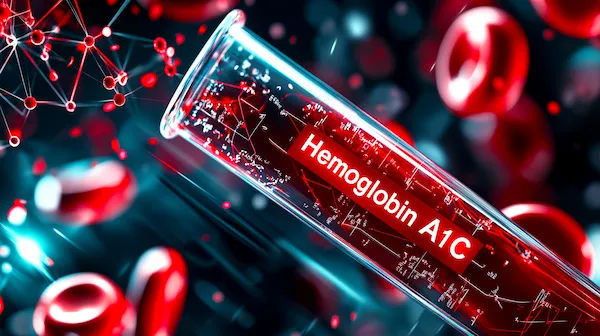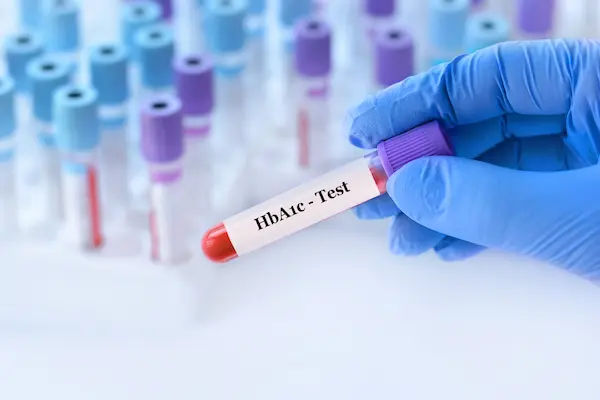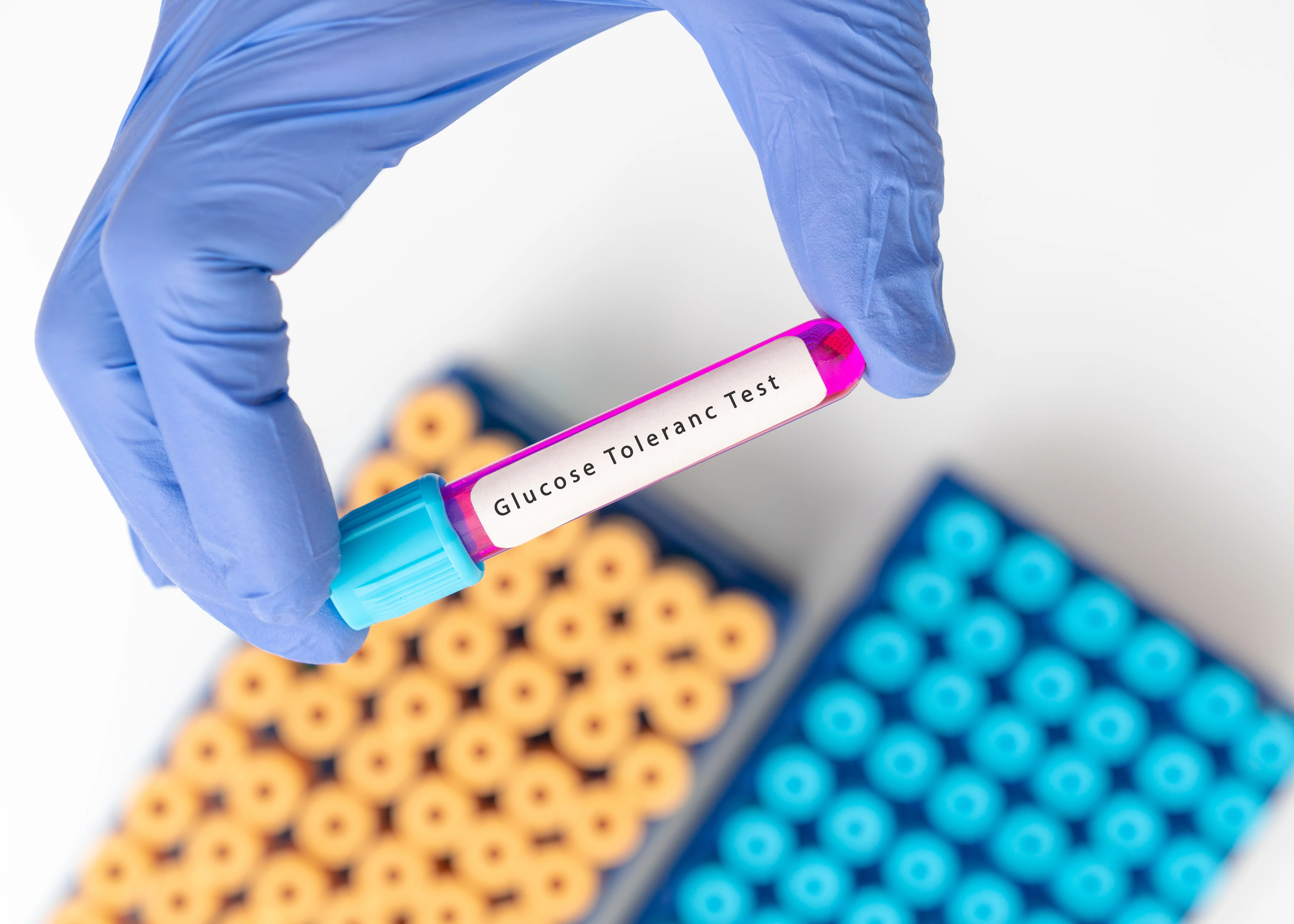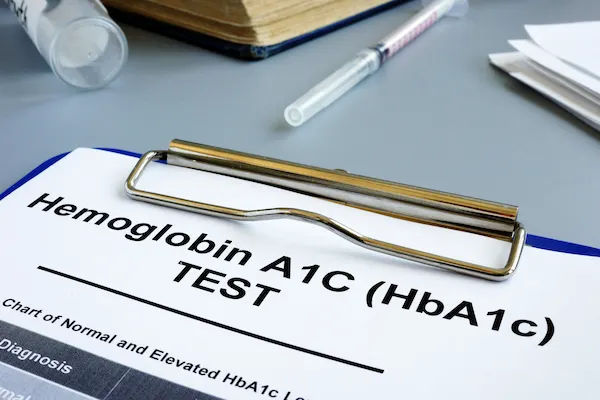Understanding the Haemoglobin A1C Test
Discover what the Haemoglobin A1C test measures, its importance in tracking long-term blood sugar control, and how it helps in the diagnosis and management of diabetes.

Written by Dr. Mohammed Kamran
Reviewed by Dr. Rohinipriyanka Pondugula MBBS
Last updated on 13th Aug, 2025

If you or someone you know has diabetes or is at risk of developing it, you may have heard about the Haemoglobin A1C (HbA1C) test. This simple blood test is a crucial tool for managing diabetes and understanding your long-term blood sugar levels. But what exactly is it, and why is it important? Let’s break it down in simple terms.
What is the HbA1C Test?
The HbA1C test measures your average blood sugar (glucose) levels over the past two to three months. Unlike daily blood sugar tests that give you a snapshot of your levels at a specific moment, the A1C test provides a broader picture of how well your blood sugar has been controlled over time.
Consult a Top Specialist
Why is it Important?
Haemoglobin A1C Test is important as it,
- Helps diagnose diabetes or prediabetes – If your blood sugar levels have been consistently high, the A1C test can confirm whether you have diabetes or are at risk.
- Monitors diabetes management – For those already diagnosed, it helps track how well treatment (diet, exercise, or medication) is working.
- Reduces complications – Keeping A1C levels in check lowers the risk of diabetes-related problems like heart disease, kidney damage, and nerve issues.
How Does the Test Work?
When sugar enters your bloodstream, it attaches to haemoglobin (a protein in red blood cells that carries oxygen). The more sugar in your blood, the more it sticks to haemoglobin. Since red blood cells live for about three months, the A1C test reflects your average blood sugar during that period.
Understanding Your Results
The test results are given as a percentage:
- Normal: Below 5.7%
- Prediabetes (higher risk of diabetes): 5.7% to 6.4%
- Diabetes: 6.5% or higher
If you have diabetes, your doctor will set a personalized A1C target (usually below 7%, but it may vary based on age and health conditions).
Who Should Get Tested?
Below are the category of people who should get tested,
- Adults over 45 (should be tested every 3 years if results are normal).
- People with risk factors (overweight, family history of diabetes, high blood pressure, or inactive lifestyle).
- Those with diabetes (should test every 3-6 months to monitor control).
How to Improve Your A1C Levels
If your A1C is high, don’t worry, small changes can make a big difference!
Diet & Nutrition
- Choose whole foods – Eat more vegetables, whole grains, lean proteins, and healthy fats.
- Limit sugary foods & refined carbs – Avoid sodas, sweets, and white bread.
- Control portion sizes – Eating balanced meals helps stabilize blood sugar.
Exercise Regularly
- Aim for 150 minutes per week of moderate activity (walking, cycling, swimming).
- Strength training (2-3 times a week) improves insulin sensitivity.
Medication & Monitoring
- Take prescribed medications as directed.
- Check blood sugar regularly if advised by your doctor.
Stress & Sleep Management
- High stress and poor sleep can raise blood sugar. Try relaxation techniques like deep breathing or yoga.
- Aim for 7-9 hours of sleep per night.
When to See a Doctor
If your A1C is in the prediabetes or diabetes range, consult a doctor for a proper management plan. Early action can prevent complications.
Book a Test or Consultation
If you need an HbA1C test or expert advice, you can easily schedule a test or consultation through Apollo 24|7. Early detection and management can help you stay healthier for longer.
Get Your Health Assessed
Final Thoughts
The HbA1C test is a powerful tool in diabetes care. Whether you’re checking for the first time or managing diabetes, understanding your A1C helps you take control of your health. Small, consistent changes in diet, exercise, and lifestyle can lead to significant improvements. Remember, you’re not alone, your doctor is there to guide you every step of the way.
Consult a Top Specialist
Consult a Top Specialist

Dr. Jawwad Mohammed Kaleem
General Practitioner
4 Years • MBBS
Hyderabad
Apollo 24|7 Clinic, Hyderabad

Dr. Shaik Abdul Kalam
General Practitioner
3 Years • MD (Physician)
Visakhapatnam
Apollo 24|7 Clinic - Andhra Pradesh, Visakhapatnam
(175+ Patients)

Dr. Mohammed Kamran
General Practitioner
5 Years • MBBS, FIDM
Nashik
Apollo 24|7 Clinic - Maharashtra, Nashik

Dr. M L Ezhilarasan
General Practitioner
6 Years • MBBS
Visakhapatnam
Apollo 24|7 Clinic - Andhra Pradesh, Visakhapatnam

Dr. D Bhanu Prakash
General Practitioner
10 Years • MBBS, AFIH, Advanced certificate in critical care medicine, Fellowship in critical care medicine
Hyderabad
Apollo 24|7 Clinic, Hyderabad
Consult a Top Specialist

Dr. Jawwad Mohammed Kaleem
General Practitioner
4 Years • MBBS
Hyderabad
Apollo 24|7 Clinic, Hyderabad

Dr. Shaik Abdul Kalam
General Practitioner
3 Years • MD (Physician)
Visakhapatnam
Apollo 24|7 Clinic - Andhra Pradesh, Visakhapatnam
(175+ Patients)

Dr. Mohammed Kamran
General Practitioner
5 Years • MBBS, FIDM
Nashik
Apollo 24|7 Clinic - Maharashtra, Nashik

Dr. M L Ezhilarasan
General Practitioner
6 Years • MBBS
Visakhapatnam
Apollo 24|7 Clinic - Andhra Pradesh, Visakhapatnam

Dr. D Bhanu Prakash
General Practitioner
10 Years • MBBS, AFIH, Advanced certificate in critical care medicine, Fellowship in critical care medicine
Hyderabad
Apollo 24|7 Clinic, Hyderabad




